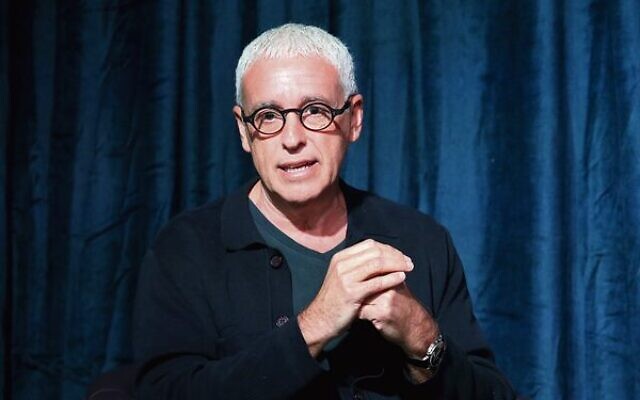‘Everything he touched turned into success’
Tributes have flowed for academic, historian and author Mark Baker, who passed away last week aged 63 from pancreatic cancer.
“A BORN teacher, a gifted writer, and a passionate advocate,” is just one of the tributes that have flowed for well-known academic, Holocaust historian, award-winning author and social justice advocate, Mark Baker, who passed away last Thursday, aged 63, after a battle with pancreatic cancer.
Baker was director of the Australian Centre for Jewish Civilisation (ACJC) at Monash University from 2008 to 2018, and worked at the university since 2002 as an Associate Professor of Jewish Studies, and Holocaust and Genocide Studies.
Andrew Markus, the Pratt Foundation Research Professor of Jewish Civilisation at Monash University, said Baker was a “brilliant lecturer [who] connected with the students”.
“He was a dynamic leader,” Markus said.
“Everything he touched turned into a great success. He was also a brilliant writer.”
In a Facebook post, the ACJC described Baker as playing “a pivotal role in turning the ACJC into Australia’s leading centre for Jewish intellectual life”, also pioneering study tours to Israel, Africa and Europe that had “a transformative impact on hundreds of students”.
“His vision and charisma left a deep impact on Monash University, and on Melbourne’s Jewish community. He will be greatly missed,” the ACJC said.
Former AJN editor Sam Lipski called Baker’s passing “a numbing loss”.
“Mark Baker was a born teacher, a gifted writer, and a passionate advocate,” he said.
As the ACJC’s Advisory Council chair during Baker’s time, Lipski said he didn’t always share his views about Israel, the Holocaust, and the Jewish community.
“When we agreed to disagree, Mark was always respectful and gracious,” he said.
Philosopher Raimond Gaita, who knew Baker for many years as an academic colleague before Baker married his stepdaughter Michelle, eulogised in a piece for The Conversation, “Mark’s fine mind – open, sharp, witty, critical and self-critical – is known to all who have read, or conversed with him, as was his impressive knowledge.
“Those qualities made him one of the most important figures in the Jewish community and beyond – and a fine writer.
“They made our many conversations fruitful and enjoyable. It’s so very painful for me now to remember how much I’d been looking forward to years of those conversations.”
Rabbi Ralph Genende said Baker “wasn’t just a historian and writer, he was a macher and a maven”.
“He spoke truth to power and called out what he saw as unjust, often taking unpopular positions,” he said.
“He was a true public intellectual, a prophet for our times. As a brilliantly gifted wordsmith with a broad heart, he knew how to challenge and stimulate discussion and gave so many of us the courage to speak out.”
Other organisations Baker was involved in included Stand Up (which he founded as Keshet), Shira Hadasha shule in Melbourne which he founded and was president of from 2006 to 2016, and New Israel Fund (NIF) Australia.
Shira Hadasha president Annette Charak told The AJN how it came to life as a shule that was Orthodox in its sensibilities and practice but one where women led parts of the service and read Torah and haftarah, through Baker’s vision, energy and leadership.
“Mark established the shule as a centre of intellectual exchange and open conversations,” she said.
“Shira has changed and evolved over the past 18 years and will continue to evolve. Nonetheless, it remains indisputably the product of Mark’s vision, and indelibly shaped by his energy and charisma. He will be missed.”
Stand Up said in a Facebook post, “We remember Mark for his vision and his compassion. He leaves a profound and lasting legacy that will forever inspire us to pursue tikkun olam as he always did.”
NIF Australia described him as “larger than life, as a passionate advocate for a progressive Israel, and [he] nurtured a strong cultural Jewish life in Australia”.
Baker’s most well-known books were The Fiftieth Gate: A Journey Through Memory (1997), which delved into his parents’ experiences during and after the Holocaust, and Thirty Days: A Journey to the End of Love (2017), a moving memoir of his first wife, Kerryn, who died aged 55 after being diagnosed with stomach cancer.
He has two books set to be published posthumously, a work of fiction titled The Alphabet of Numbers and a memoir, A Season of Death, written after his cancer diagnosis.
He is survived by his wife Michelle, mother Genia, four children, and three grandchildren.


comments